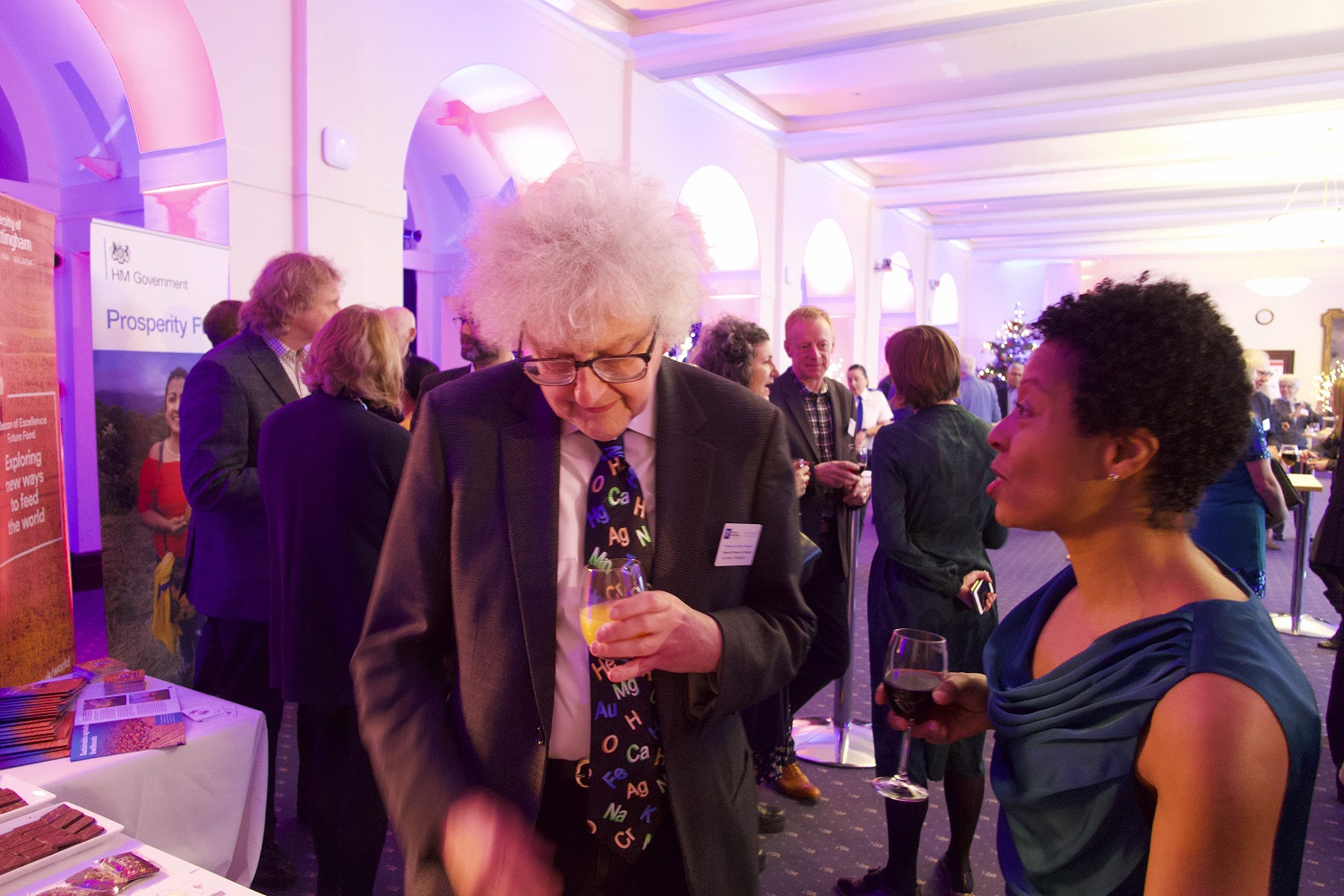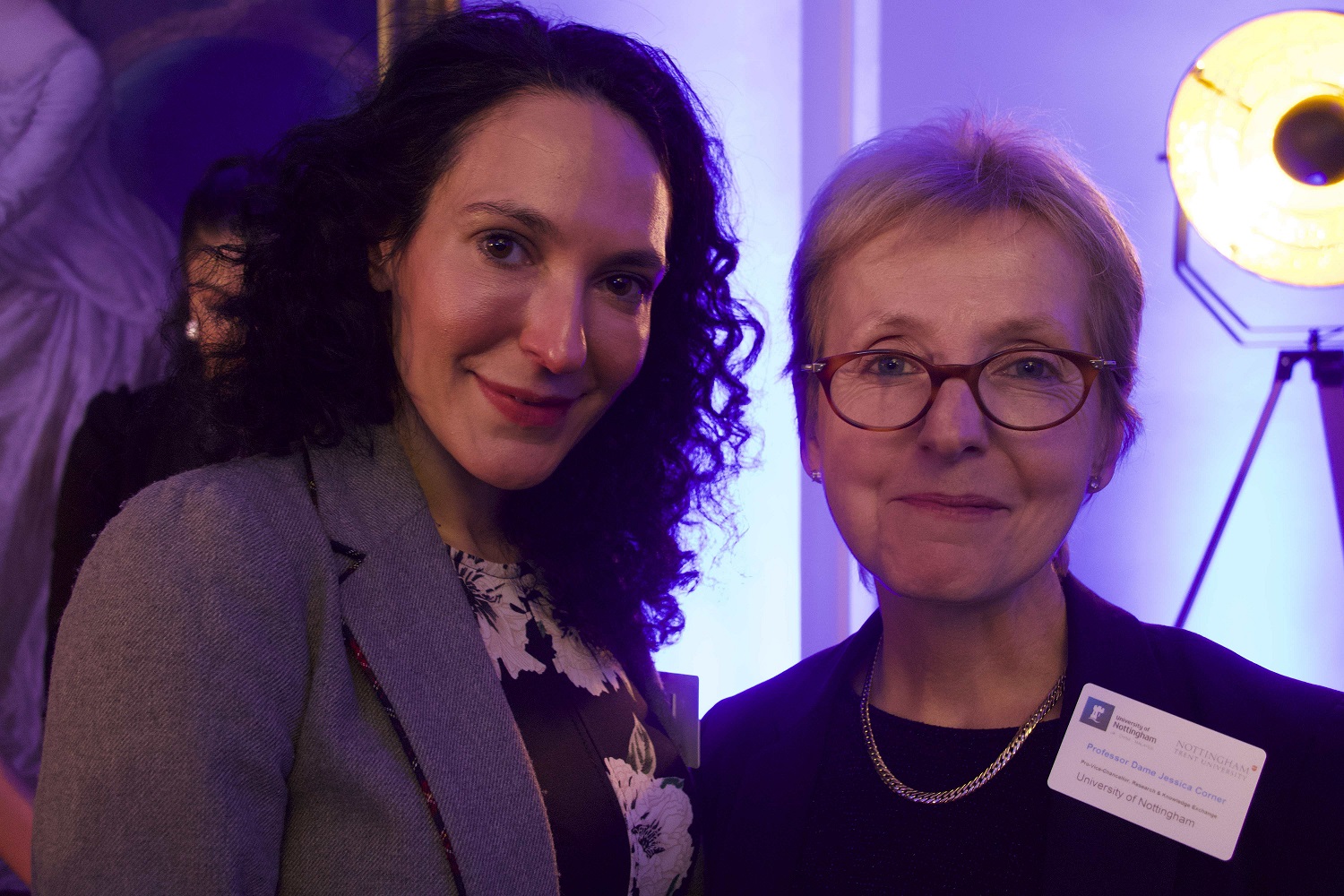A new range of chocolate produced as part of a research project to improve flavour and quality for Colombian female cocoa growers has been launched – just in time for Christmas!
Award-winning Chocolatiers, Luisa's Vegan Chocolates, has been working with researchers from the University of Nottingham's Future Food Beacon, to create a new range of chocolate using Colombian cocoa beans that have been part of cutting-edge research. This project aims to understand and control cocoa fermentation - the chemical breakdown of a substance by bacteria, yeasts, or other microorganisms.
The research has focused on the fermentation of freshly harvested cocoa beans – a traditional process that takes place in wooden boxes before the beans leave the farm. The Future Food Beacon has pioneered in-field DNA analysis techniques to help women farmers better control the flavour of the cocoa beans they produce, , allowing them to sell their beans on the high value 'super-premium' chocolate market.
This is the first cocoa crop from one of the UK Government's Prosperity Fund's seven Agri-Tech projects, which are working to economically empower female smallholders in Colombia. The Prosperity Fund's Colombia programme aims to unlock economic growth in the country's conflict-affected regions. Through its activities in governance, infrastructure and agriculture, the Programme seeks to benefit 13 million people, with a focus on women and girls, reducing poverty, promoting gender equality, and creating new economic opportunities for both Colombia and the UK.
Sought after beans
The chocolate market is currently divided into 'bulk' and 'fine/flavour' cocoa, and Colombia produces just under 1% of the world's fine/flavour cocoa beans. These beans are sought after by bean-to-bar chocolate makers because the chocolate produced has intense, complex flavours and aromas. Luisa's Vegan Chocolates is committed to paying farmers at the super-premium price point, benefitting the Colombian farmers financially while bringing these unique chocolate flavours to UK chocolate lovers.
The first harvest of Colombian cocoa beans from the project have now been turned into delicious chocolate bars, unveiled at a special event last night hosted by the University of Nottingham, that will now be sold at Luisa's Vegan Chocolates and at selected University outlets.

It's wonderful to have the final chocolate product now available for people to buy. It is the result of a great collaboration with a local business and a global research team who have worked together to bring new technology to rural, female farmers in Colombia, a conflict-affected region, allowing them to develop skills that will enhance their productivity and contribute to their economic independence.
"The project helps open up the UK market for Colombia cocoa producers, while also providing opportunities for UK agri-tech businesses in Colombia. Most importantly for the Future Food Beacon and the University of Nottingham, the project provides an opportunity to develop in-field analysis techniques furthering our scientific knowledge while also participating in social justice and global development."
The chocolate has been through various tastings to ensure it meet the needs of consumers, most recently on 5 December at achocolate tasting event hosted by the Prosperity Fund's Colombia Programme at the Foreign and Commonwealth Office in London.
Luisa Vicinanza-Bedi said: "The Prosperity Fundproject with the University of Nottingham has been the most rewarding adventure so far in my chocolate career to date and presenting this to the Foreign and Commonwealth Office was an honour. Going out to meet the farmers Yanira, Martha and Carmen in Colombia was incredible; I saw the beautiful valleys in which the cocoa pods are grown, and we shared stories about our families, our children and, of course, our harmonious love of cacao, which is the central connection of how our paths would be drawn together to create a beautiful journey of women in chocolate. It was such an exciting moment to be presented with three huge sacks of cocoa from the female cacao farmers, and I could not wait to start the chocolate-making process, turning this creation from bean-to-bar. First, to assess the fermentation process, which is the fundamental stage for both the taste of the chocolate and the investigation of the project, I performed a cut test to evaluate the colours of the cocoa beans, which is testament to their quality. There is so much science that takes place during the process of cocoa cultivation, so it was fantastic to work with the University of Nottingham on using this science for the to develop the high quality and fine flavour of the chocolate.

The most important factor though is the ethical purpose of the project; through this investigation, the farmers will be able to enter the premium sector of the market by fine- tuning their practices, and in turn be paid a better-than-fair price for their beans… it's a complete breakthrough.
The most important factor though is the ethical purpose of the project; through this investigation, the farmers will be able to enter the premium sector of the market by fine- tuning their practices, and in turn be paid a better-than-fair price for their beans… it's a complete breakthrough."
The research has been funded by the UK Prosperity Fund, in partnershipwith Innovate UK,as the delivery partner, and been carried out in collaboration with the National Federation of Cocoa Growers in Colombia, Casa Luker in Colombia and the Cocoa Research Centre at The University of the West Indies.









